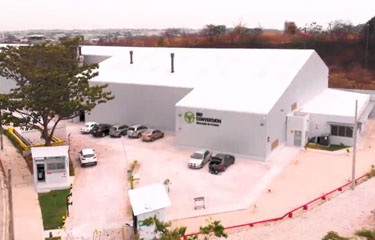Guayaquil, Ecuador-based Bioconversión has opened a USD 2.5 million (EUR 2.2 million) plan producing insect meal – the first such insect meal production plant of its kind in Latin America.
Founded in 2019, the biowaste-to-protein processing firm will use black solder fly (hermetia illucens) larvae to produce 1,200 metric tons (MT) of animal feed and 5,000 MT of fertilizer a year.
The plant will annually use 14,500 MT of organic matter coming from agribusiness residues – which would normally be sent to landfills – as food for its flies, the company said. The flies’ larvae feed off the waste, producing fertilizer in the process. Once mature, the larvae are harvested, dried, milled, and turned into animal feed.
"Investment in the circular economy is the way to go, and that is why we have opted for this project," Bioconversión CEO Mauricio Laniado said in a press release.
Insect meal has high nutritional content, with a protein value of 45 percent and 26 percent fat, and is seen as a sustainable alternative to traditional sources of protein such as fishmeal. It is estimated that with one hectare, up to two million pounds of insect protein can be produced. Comparably, in the same space, up to 1,500 pounds of soy protein or 192 pounds of meat protein can be produced.
In the next decade, the nascent insect-meal industry has the potential of processing 1,460,000 MT of organic waste per year, converting it into 73,000 MT of insect protein meal and 505,000 MT of organic fertilizer, the company said. The industry could generate USD 146 million (EUR 129 million) a year in sales and create up to 2,000 new jobs, it said.
The company is the first to open in Zede del Litoral, a special economic development zone destined for regional innovation and technology transfer operated by the Superior Polytechnic School (Espol, according to its acronym in Spanish).
Photo courtesy of Bioconversión







